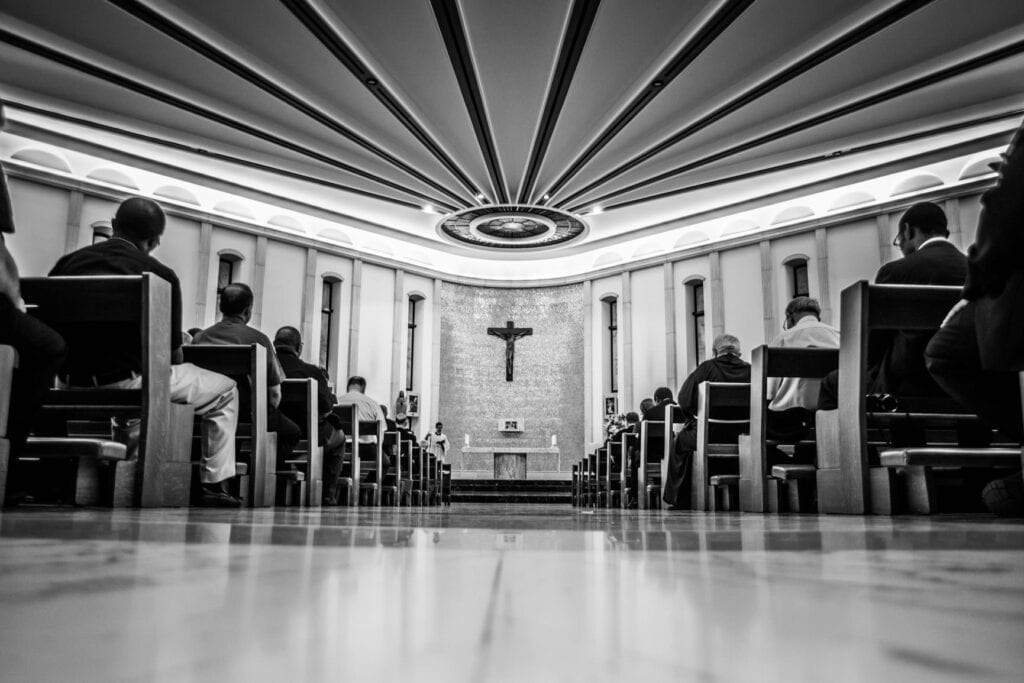Our Lord Jesus Christ is determined to bring us to where He is (cf. John 12:26)—the state of Blessedness. The goal is not just to wait until the end of time to bring us to heaven. The Lord considers every bit of our time on earth so precious, that He desires to spend it with us—thus the Emmanuel, God with us. The perfect expression of the Emmanuel is the Church, the Body of Christ. Today we are praying for those members of the Body of Christ who are on their way to Heaven but are not there yet.
The Catechism (cf. CCC 954) teaches that the Body of Christ constitutes God’s very own who are already in Heaven—the Angels and Saints (called the Triumphant Church—they are in the state of victorious Blessedness); those at the verge of entering full Blessedness but are being purified (called the Penitent Church—those in the state of purgation); and those still on earth making their way to God (called the Militant Church—soldiers of Christ). These three states of the Body of Christ are always in unison whenever we offer true worship to God. The Triumphant church helps us (the Militant Church) to pray through their intercession while the Militant Church prays, intercedes and offers sacrifices for the Penitent Church.

As one in Jesus, the Penitent Church depends on our prayers for their purification. (cf. John 17:21). They are also part of those who must be raised on the last day, as declared by the Lord in today’s Gospel reading. It is the Lord’s desire to bring everyone who believes in Him to where He is—the place of Blessedness. Jesus declares that this is the will of His Father (cf. John 6:37). In the life of Jesus we see that He was totally dedicated to fulfilling His Father’s will. He made it clear that the Father’s will is His food—His sustenance (cf. John 4:34).
By extension, we, described by the Scripture as those who “have been buried with Christ by baptism into death, and would be raised into new life with Him”(Rom 6:4); are called to live as He lived, according to his desire that “everyone given to Him by the Father should come to Him” (cf. John 6:37).
It is in fulfillment of this desire that the Church commemorates all the faithful departed. This is a unique kind of remembrance—a grace-filled one that impacts those being remembered. At Mass when we proclaim the death of Jesus Christ and profess His resurrection until He comes again in glory we are also praying that He brings into His eternal happiness our sisters and brothers who are in purgatory as well. The Catechism of the Catholic Church (CCC) helps us to understand that we are able to offer needful spiritual assistance to the brethren being purified in purgatory through our fervent prayers and sacrifices. Thus we read in the Catechism (CCC 1032) “From the beginning the Church has honored the memory of the dead and offered prayers in suffrage for them, above all the Eucharistic sacrifice, so that, thus purified, they may attain the beatific vision of God. The Church also commends almsgiving, indulgences, and works of penance undertaken on behalf of the dead:
Let us help and commemorate them. If Job’s sons were purified by their father’s sacrifice, why would we doubt that our offerings for the dead bring them some consolation? Let us not hesitate to help those who have died and to offer our prayers for them.” In as much these souls are prayed for at every Mass, today’s Masses dedicated to praying specifically for them highlights the fact that they are inseparable members of the one Body of Christ. As we are constantly being assisted by the Angels and Saints in heaven, so are we required to help our sisters and brothers who on their way to eternal life currently undergoing the needed purification.
May our prayers for our brothers and sisters in purgatory find favor in the sight of God today and always through Christ our Lord, Amen

[…] about those souls already with God—beholding the beatific vision whom we are yet to recognize as Saints? Could such […]